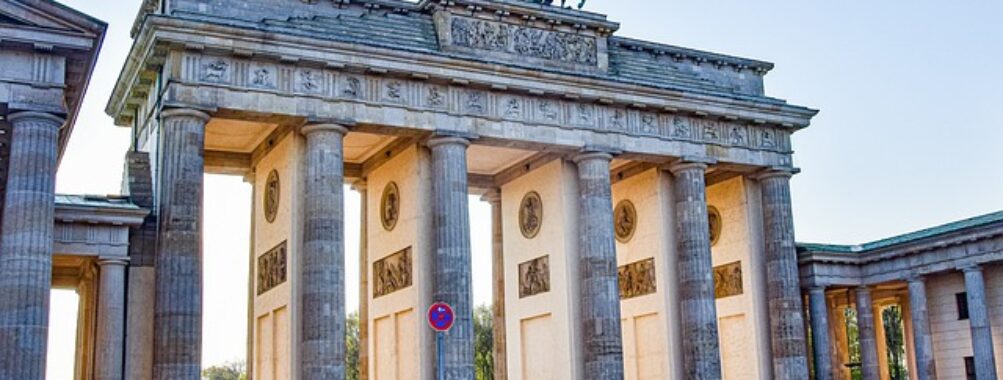
Is Berlin Safe? 5 Surprising Facts Every Traveler Should Know
Berlin beckons travelers with its rich history and vibrant culture. Many wonder if it’s safe to visit this German capital. Berlin has low crime rates compared to other major European destinations, making it generally a safe city for tourists. However, like any big city, visitors should stay alert and take basic precautions.
Pickpocketing can happen in crowded areas and on public transport. Tourists should keep an eye on their belongings and avoid flashing expensive items. The city has a lively nightlife scene, but it’s wise to stick to well-lit areas after dark.
Getting travel insurance is a smart move when visiting Berlin. It can cover unexpected issues like lost luggage or medical emergencies. With some common sense and awareness, most travelers enjoy a trouble-free stay in this exciting city. Berlin’s mix of history, art, and energy makes it a top spot for adventurous tourists.
Table of Contents
- Understanding Berlin
- Berlin’s History and Influence
- Cultural Landscapes and Neighborhoods
- Language and Communication
- Safety Overview
- Crime Rate Analysis
- Emergency Services and Medical Emergencies
- Safety Index and Travel Advisories
- Transportation Insights
- Public Transport Networks
- Taxis and Ride-Sharing Services
- Navigating the City Safely
- Tourist Safety
- High-Risk Areas and Times
- Safety Tips for Travelers
- Protection against Petty Crimes
- Accommodation and Hospitality
- Choosing Safe Lodging
- Hospitality and Local Etiquette
- Leisure and Entertainment
- Exploring Berlin’s Nightlife
- Shopping and Dining
- Cultural Attractions and Museums
- Legal and Practical Considerations
- Understanding Local Laws
- Managing Money and Payments
- Useful Tips for Solo Travelers
- Staying Informed and Secure
- Security Measures in Berlin
- Staying Updated During Your Stay
- Frequently Asked Questions
- What precautions should solo female travelers take when visiting Berlin?
- How does the safety of Berlin compare to that of London for tourists?
- Are there specific areas in Berlin to avoid at night for safer travel experiences?
- What should American tourists be aware of in terms of safety while visiting Berlin?
- How receptive is Berlin for foreigners and non-German speakers?
- What do international students need to consider for their safety while studying in Berlin?
- Book Your Dream Experience
- More Travel Guides
Understanding Berlin
Berlin is a city of contrasts, blending rich history with modern flair. Its diverse neighborhoods, cultural tapestry, and evolving identity make it a fascinating place to explore.
Berlin’s History and Influence
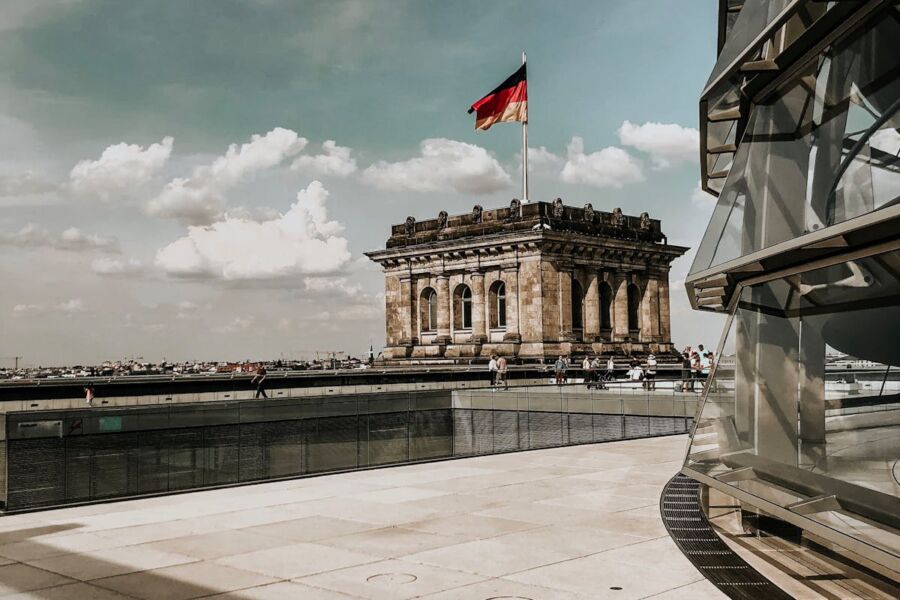
Berlin’s past shapes its present in profound ways. The city has been at the center of major historical events, from World War II to the Cold War. The Berlin Wall, which divided the city for nearly 30 years, left a lasting mark on the urban landscape and psyche of Berliners.
Today, remnants of the Wall serve as powerful reminders of the past. You can see parts of it at the East Side Gallery or Bernauer Strasse. These sites offer a glimpse into the city’s divided history and subsequent reunification.
Berlin’s influence extends beyond its borders. As the capital of Germany, it plays a key role in European politics and the economy. The city’s transformation from a symbol of division to one of unity inspires many visitors.
Cultural Landscapes and Neighborhoods
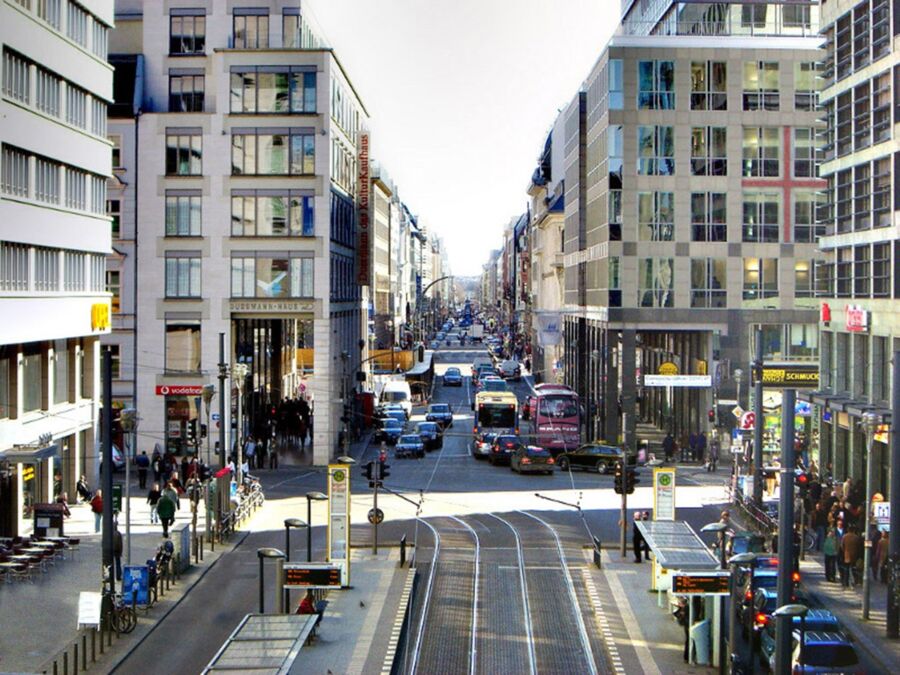
Berlin’s neighborhoods each have their own unique character. Mitte, the central district, is home to many famous landmarks and government buildings. It’s a mix of old and new, with historic sites next to modern architecture.
Prenzlauer Berg is known for its trendy cafes and family-friendly atmosphere. Young parents and artists love this area for its relaxed vibe. Charlottenburg-Wilmersdorf offers a more upscale experience with high-end shops and elegant buildings.
Friedrichshain is popular among young people for its vibrant nightlife and alternative scene. You’ll find plenty of street art, quirky bars, and music venues here.
Each area contributes to Berlin’s diverse cultural landscape. From world-class museums to underground galleries, there’s always something new to discover.
Language and Communication
German is the official language in Berlin, but don’t worry if you don’t speak it. Many Berliners, especially in tourist areas and businesses, speak English well.
Signs in public places are often in both German and English. This makes it easier for visitors to navigate the city. In restaurants, you can usually find English menus or staff who can help translate.
Learning a few basic German phrases can be helpful and appreciated by locals. Simple greetings like “Hallo” (hello) and “Danke” (thank you) can go a long way.
Berlin’s international character means you might hear many languages spoken on the streets. This adds to the city’s multicultural feel and welcoming atmosphere for visitors from all over the world.
Safety Overview
Berlin is generally a safe city for travelers, but it’s smart to stay aware of your surroundings. The German capital has lower crime rates than many other big cities, with good emergency services and positive travel advisories.
Crime Rate Analysis
Berlin’s crime rate is lower than many major cities worldwide. Violent crimes are rare, but petty theft and pickpocketing can happen in busy tourist areas. Alexanderplatz and Kurfürstendamm are hotspots for pickpockets, so keep an eye on your stuff there. Bike theft is pretty common too, so always lock up your rental bike securely.
The Berlin Police do a good job keeping the city safe. They’re visible in tourist areas and quick to respond to problems. Drug-related crimes happen sometimes, especially around nightclubs, but they don’t usually affect tourists who aren’t looking for trouble.
Emergency Services and Medical Emergencies
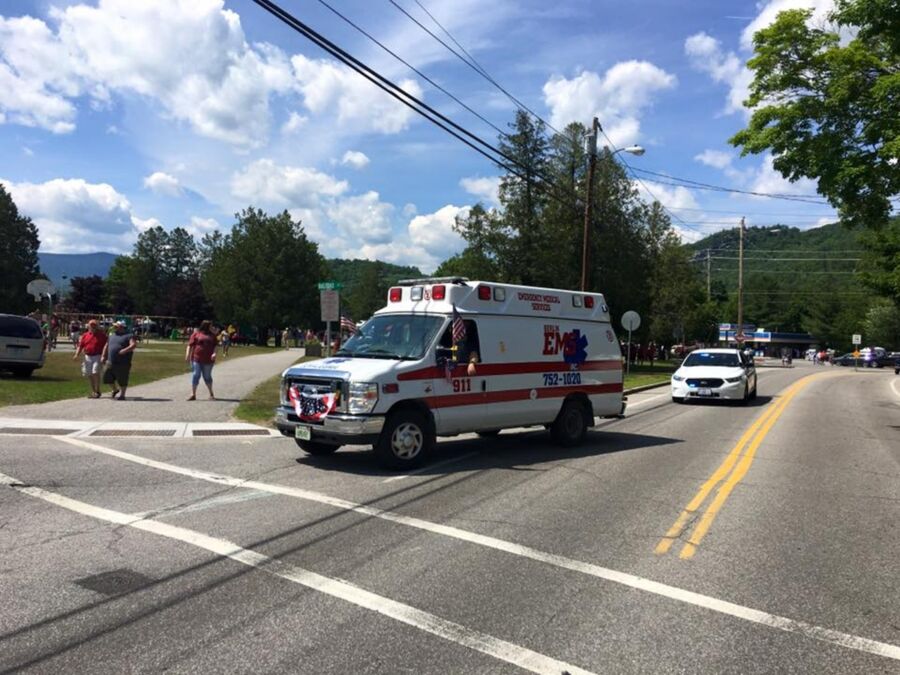
Berlin has top-notch emergency services. If you need help, just call 112 for police, fire, or an ambulance. The operators usually speak English, which is handy for tourists.
The city’s hospitals are modern and well-equipped. Many doctors speak English, so language isn’t usually a problem for medical care. It’s smart to get travel insurance before your trip, just in case.
Public transport is safe, even at night. Taxis are reliable too, but always make sure you’re getting in a legit cab.
Safety Index and Travel Advisories
Berlin scores well on safety indexes. It’s often ranked as one of the safer big cities in Europe. Most travel advisories from other countries say Berlin is safe to visit.
There’s a small risk of terrorist attacks, like in any major city. But German authorities are on top of this threat. They’ve beefed up security at popular spots and events.
Street protests happen sometimes, but they’re usually peaceful. If you see one, it’s best to just avoid the area. The police handle these situations well.
Transportation Insights
Berlin’s transportation system is efficient and extensive, making it easy to get around the city. Visitors have several options for navigating the German capital safely and conveniently.
Public Transport Networks
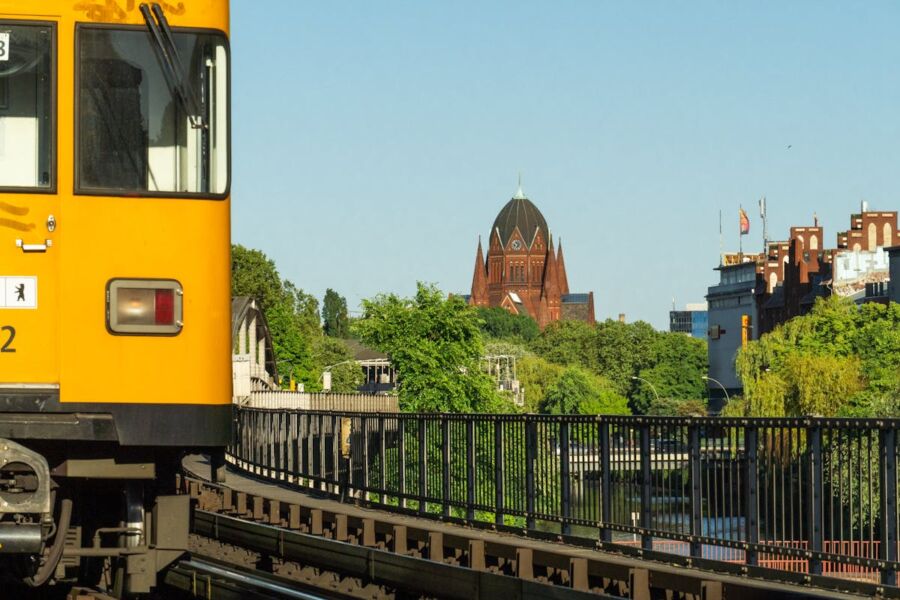
Berlin’s public transport network is top-notch. The U-Bahn (subway) and S-Bahn (urban rail) cover most of the city. Buses and trams fill in the gaps. Trains run frequently, even late at night on weekends.
A single ticket works for all types of transport. Buying a day pass or multi-day ticket can save money for tourists who plan to use public transit a lot. The BVG app helps with route planning and real-time updates.
During busy times, keep an eye on belongings. Pickpockets sometimes target crowded trains or stations. But overall, the system is safe and reliable.
Taxis and Ride-Sharing Services
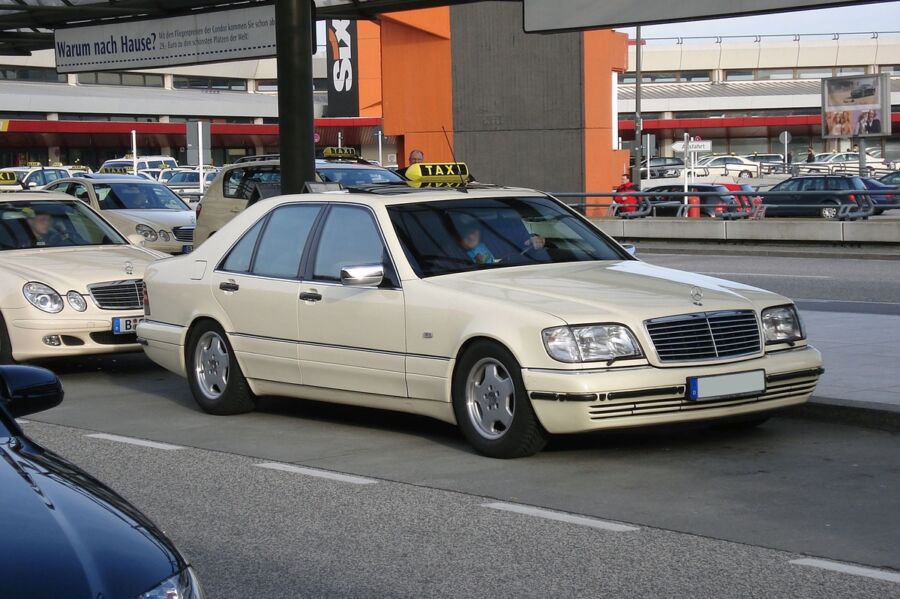
Taxis are plentiful in Berlin. They’re cream-colored and have a black and yellow sign on top. Drivers are usually honest and use meters. It’s best to hail taxis from designated stands or by phone.
Uber operates in Berlin, along with local ride-sharing apps like Bolt and FREE NOW. These services can be cheaper than taxis, especially for longer trips.
When using ride-sharing, check the driver’s info and license plate before getting in. Share trip details with a friend for extra safety.
Walking is a great way to explore Berlin. Many areas have wide sidewalks and pedestrian zones. Bike lanes are common too, so watch out when crossing streets.
Renting a bike is popular. The city has many bike paths and cyclist-friendly roads. Wear a helmet and use bike locks, even for short stops.
At night, stick to well-lit main streets. If feeling unsure, hop in a taxi or use public transport. Trust your instincts and be aware of your surroundings, just like in any big city.
Tourist Safety
Berlin is generally a safe city for visitors, but it’s smart to stay alert. Knowing the riskier areas, following safety tips, and protecting against petty crimes can help ensure a worry-free trip.
High-Risk Areas and Times
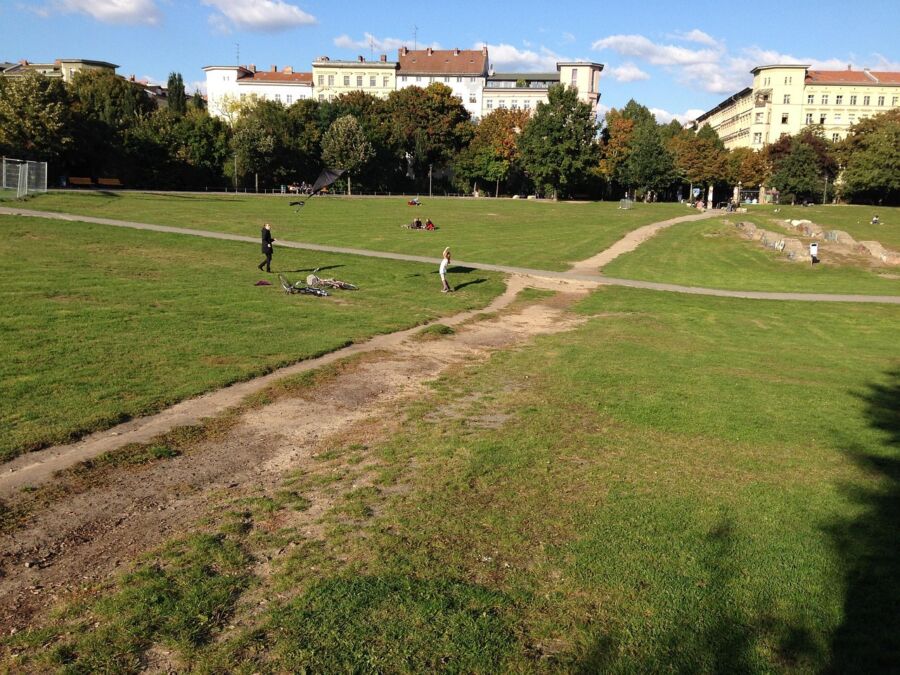
Some parts of Berlin need extra caution, especially at night. Alexanderplatz and Kottbusser Tor can get rowdy after dark. The Görlitzer Park area is known for drug deals. It’s best to stick to well-lit, busy streets when out late.
Pickpockets work in crowded spots like Unter den Linden and busy subway stations. They often target distracted tourists. Keep a close eye on your stuff in these places.
New Year’s Eve gets wild in Berlin. Fireworks and big crowds make it fun but also risky. If you join the party, watch out for drunk revelers and stay with friends.
Safety Tips for Travelers
Getting around Berlin is pretty safe, but a few tricks can help. Use official taxis or rideshares instead of unlicensed cabs. The subway is great, but stay alert late at night.
Don’t flash fancy jewelry or gadgets. It can make you a target for thieves. Keep valuables locked up in your hotel safe when you’re out exploring.
Learn a few German phrases. Locals appreciate the effort, and it can help if you need assistance. “Hilfe” (help) and “Polizei” (police) are good to know.
Carry a copy of your passport and leave the real one in your hotel. It’s smart to have ID, but losing your passport is a big hassle.
Protection against Petty Crimes
Pickpockets are the main worry for tourists in Berlin. They work in teams and use distraction tricks. Keep your wallet in a front pocket or inside jacket pocket.
Bag snatching can happen in busy areas. Wear backpacks on your front in crowded spots. Cross-body bags are harder for thieves to grab.
Be careful with ATMs. Cover the keypad when entering your PIN. Stick to machines inside banks when possible.
Credit card skimming is rare but possible. Keep an eye on your card during transactions. Check your statements for weird charges.
If something seems off, trust your gut. Most Berliners are friendly, but scammers do target tourists. Don’t be afraid to walk away from fishy situations.
Accommodation and Hospitality
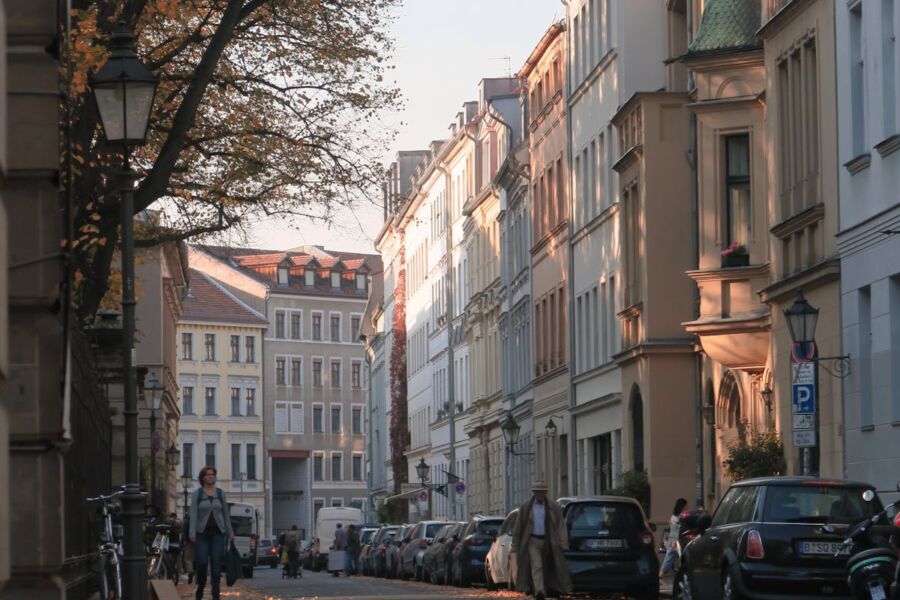
Berlin offers a range of safe lodging options and welcomes visitors with warm hospitality. Knowing where to stay and how to interact with locals can make your trip more enjoyable.
Choosing Safe Lodging
Berlin has lots of great places to stay that are both comfy and secure. Many travelers like staying in Wilmersdorf, a quiet area with nice hotels and apartments. It’s close to tourist spots but not as busy as the city center.
When picking a place, look for hotels with good reviews about safety. Many have 24-hour front desks and security cameras. Hostels can be fun and cheap, but make sure to choose one with lockers for your stuff.
If you’re renting an apartment, go for ones in well-lit areas near public transport. Ask the host about neighborhood safety before booking.
Hospitality and Local Etiquette
Berliners are friendly and often speak English. They like it when visitors try to speak a bit of German, even if it’s just “Danke” (thank you).
In hotels, it’s normal to tip porters a euro or two per bag. At restaurants, round up the bill or add 5-10% for good service.
Dress codes are pretty relaxed in Berlin. Most places don’t care what you wear, but some fancy restaurants might want you to dress up a bit.
It’s safe to drink tap water in Berlin. Many locals are eco-friendly, so using a refillable water bottle is a good idea.
Remember to keep your voice down in public spaces. Berliners value peace and quiet, especially in residential areas.
Leisure and Entertainment
Berlin offers a vibrant mix of nightlife, shopping, and cultural attractions. The city’s energetic scene has something for everyone, from trendy clubs to world-class museums.
Exploring Berlin’s Nightlife
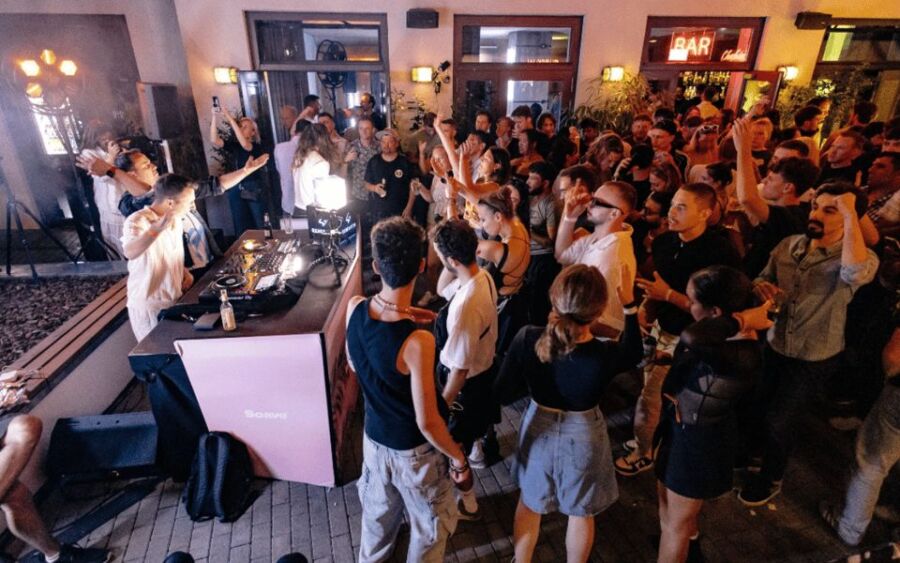
Berlin’s nightlife is legendary. The city never sleeps, with clubs that stay open all weekend. Berghain, a famous techno club, is housed in an old power plant. It’s known for its strict door policy, so dress casually and be patient in line.
For a more relaxed vibe, check out the bars in Kreuzberg. This area has lots of cool spots to grab a drink. Many places have outdoor seating in summer, perfect for people-watching.
Live music fans should head to SO36 in Kreuzberg. This iconic venue hosts punk, rock, and indie shows. It’s been a key part of Berlin’s music scene since the 1970s.
Shopping and Dining
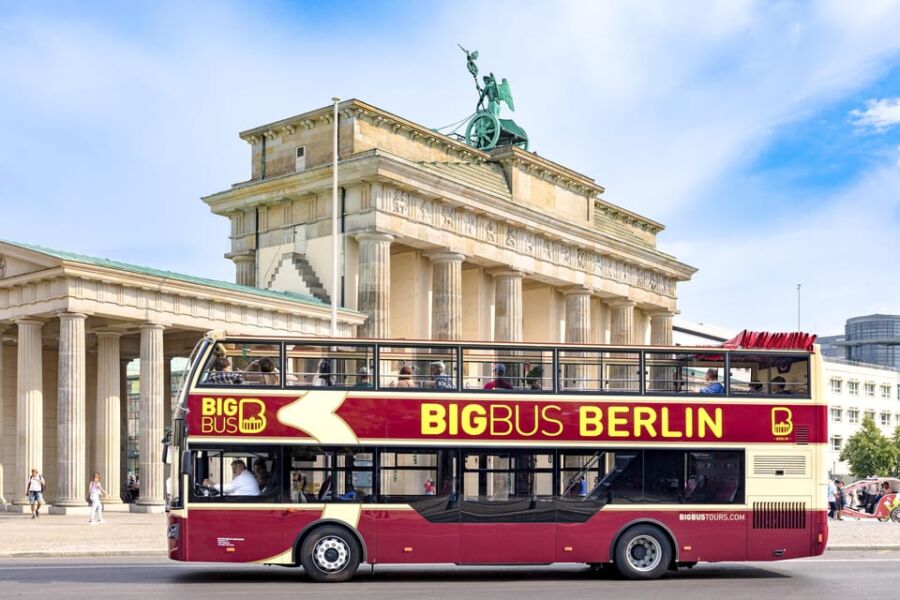
Kurfürstendamm, or Ku’damm for short, is Berlin’s main shopping street. It’s lined with high-end stores and boutiques. KaDeWe, Europe’s largest department store, is here too. Its food hall on the top floor is a must-visit for foodies.
For unique finds, try the flea markets. Mauerpark’s Sunday market is huge and super popular. You can find vintage clothes, antiques, and handmade crafts there.
Berlin’s food scene is diverse and exciting. Try currywurst, a local fast food favorite. For a fancy meal, book a table at one of the city’s Michelin-starred restaurants. Vegetarians and vegans have lots of options too – Berlin is very veggie-friendly.
Cultural Attractions and Museums
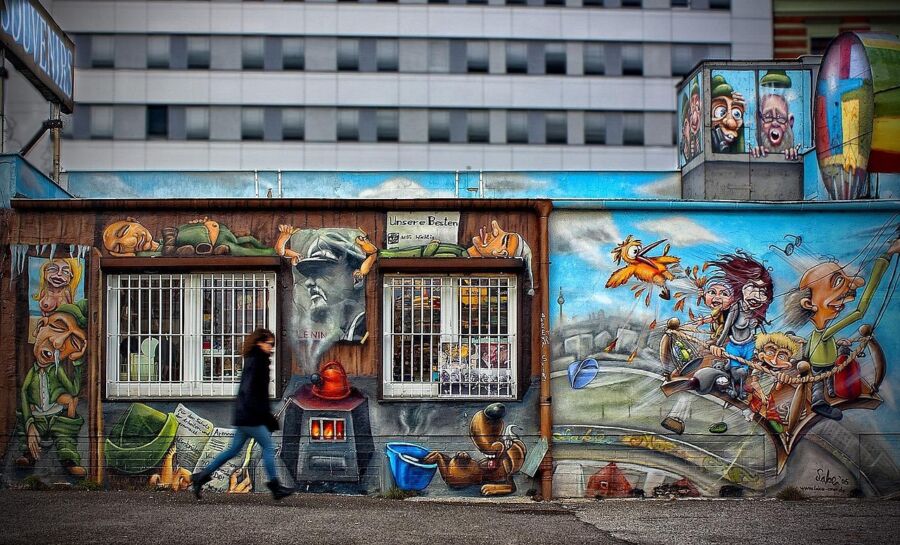
Museum Island is a UNESCO World Heritage site with five world-class museums. The Pergamon Museum houses ancient artifacts, including the stunning Ishtar Gate from Babylon.
The East Side Gallery is a must-see. It’s a long stretch of the Berlin Wall covered in murals by artists from around the world. It’s a powerful reminder of the city’s divided past.
For a dose of history, visit the Brandenburg Gate. This 18th-century monument has witnessed many key events in German history. Nearby, the Reichstag building offers great views from its glass dome.
Alexanderplatz, once the center of East Berlin, is worth a visit too. The TV Tower there gives panoramic views of the city. In fall, don’t miss the German version of Oktoberfest for a fun, beer-filled experience.
Legal and Practical Considerations
Berlin has some unique laws and customs that visitors should know about. Being aware of these can help you stay safe and avoid any unexpected issues during your trip.
Understanding Local Laws
Berlin’s laws are pretty chill compared to other big cities. You can drink alcohol in public spaces, which is pretty cool. But don’t go overboard – public drunkenness can still get you in trouble. Smoking is banned in most indoor places, so step outside if you need a cigarette.
Here’s a quick rundown of some key laws:
- Jaywalking is illegal and you can get fined
- Bike helmets aren’t required, but they’re a good idea
- Drugs are illegal, even though some clubs have a reputation for them
- You need to carry ID at all times
Remember, ignorance of the law isn’t an excuse. If you’re not sure about something, it’s better to ask a local or check online.
Managing Money and Payments
Berlin is all about cash. Many places don’t take cards, so always have some euros on hand. ATMs are easy to find, but watch out for fees. Some local banks offer free withdrawals.
Credit cards are accepted at bigger stores and restaurants. But don’t count on using them everywhere. Contactless payments are becoming more common, especially since COVID.
Watch out for pickpockets in crowded areas. Keep your wallet in a front pocket or use a money belt. And be careful with those big 50 euro notes – some shops won’t take them.
Useful Tips for Solo Travelers
Berlin is great for solo travelers. It’s easy to meet people and there’s always something going on. Hostels are a good way to connect with other travelers. Many offer group activities or pub crawls.
Safety-wise, Berlin is pretty good. But use common sense, especially at night. Stick to well-lit areas and trust your gut. If something feels off, it probably is.
Public transport is safe and runs 24/7 on weekends. Taxis are reliable too. Just make sure they use the meter. And don’t forget about bike rentals – it’s a fun way to explore the city.
Staying Informed and Secure
Berlin is mostly safe, but smart travelers take steps to stay informed and secure. Knowing what’s going on and taking a few precautions can make your trip worry-free.
Security Measures in Berlin
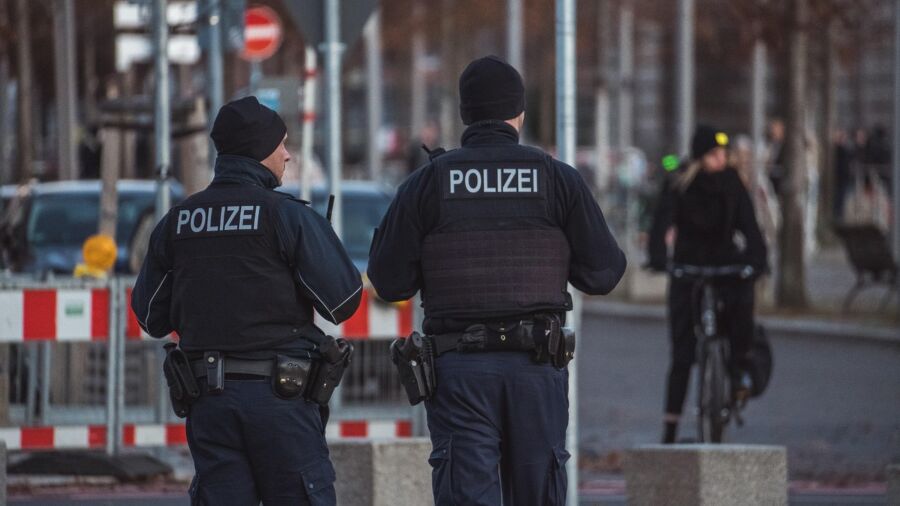
The Berlin police work hard to keep the city safe. They have extra patrols in busy tourist spots. There are cameras in many public areas to deter crime. The city has improved lighting in parks and on streets to make them safer at night.
Berlin’s public transit system has security staff and emergency call buttons. Many hotels have 24-hour front desks and security teams. Restaurants and shops often have their own security guards too.
The city government runs safety campaigns to teach both locals and visitors how to stay safe. They hand out free maps with safety tips at tourist info centers.
Staying Updated During Your Stay
It’s smart to keep an eye on local news while you’re in Berlin. The city has an official app called “Berlin Safety” with real-time alerts about things like big crowds or transport issues. You can set it to English.
Sign up for alerts from your country’s embassy in Berlin. They’ll let you know about any safety concerns for travelers.
Ask your hotel staff for safety tips about the neighborhood. They know the area best and can tell you which spots to avoid, especially at night.
Keep your phone charged and buy a local SIM card or portable Wi-Fi. This way, you can always look up info or call for help if needed. Save important numbers like the Berlin police (110) and your embassy.
Frequently Asked Questions
Berlin is generally a safe city, but there are some important things for visitors to keep in mind. Let’s look at some common questions about safety in the German capital.
What precautions should solo female travelers take when visiting Berlin?
Solo female travelers should stay alert, especially at night. Stick to well-lit areas and main streets. Trust your gut if a situation feels off. Consider joining group tours or meetups to explore the city with others.
How does the safety of Berlin compare to that of London for tourists?
Berlin and London have similar safety levels for tourists. Both cities have low violent crime rates. Pickpocketing can be an issue in crowded spots. Berlin may feel a bit more relaxed and less hectic than London.
Are there specific areas in Berlin to avoid at night for safer travel experiences?
Some parts of Neukölln and Wedding can be sketchy after dark. The Görlitzer Park area in Kreuzberg is best avoided at night due to drug activity. Stick to popular nightlife areas like Mitte or Prenzlauer Berg in the evenings.
What should American tourists be aware of in terms of safety while visiting Berlin?
American tourists should keep a low profile. Don’t flaunt valuables or cash. Be careful with alcohol, as the drinking culture is different. Learn basic German phrases and respect local customs.
How receptive is Berlin for foreigners and non-German speakers?
Berlin is very welcoming to foreigners. Many locals speak English, especially in tourist areas. Signs are often in English too. The city has a big international community. People are used to visitors and tend to be patient with language barriers.
What do international students need to consider for their safety while studying in Berlin?
Students should research safe neighborhoods before picking housing. Don’t walk alone late at night after parties. Be careful with belongings in crowded places or on public transport. Get to know German laws and emergency numbers.


